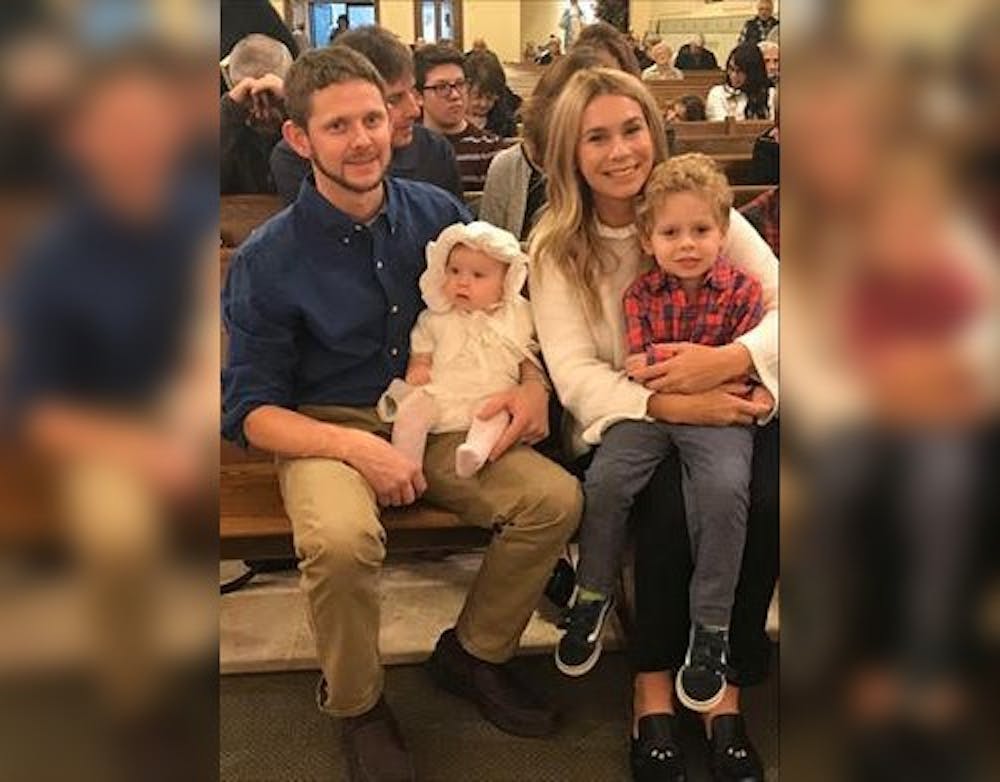Kristi Alderson wants an enchilada. But at 38 weeks pregnant in the middle of a global pandemic, her cravings take a backseat to her safety. Instead, she’s learned how to make the fluffy tortilla-based food at home, along with a number of Thai recipes taken from cooking shows she watches with her eight-year-old daughter.
Pregnant women, a group at high risk for the coronavirus, face a challenge during the pandemic: They have to prioritize the health of themselves and the child growing inside them.
Caitlin Bernard, OB-GYN and IU School of Medicine assistant professor, said there are a lot of unknowns when it comes to COVID-19 and pregnancy. Doctors can draw some conclusions from cases in China and Europe. But the severity of the symptoms, the chances of passing the virus on to the child and the chances of the mother being hospitalized are all unclear.
“We really just don't know the answer right now,” she said.
Alderson gave birth to her first child in 2011, but there wasn’t a pandemic to contend with. This time, she’s still venturing out of her home in Gosport, Indiana, for doctor’s visits and prenatal exams, but things are different. She’s screened before entering the clinic, and she goes in alone. Her husband and friends are barred from accompanying her.
Aside from the risks of COVID-19, Alderson, 41, is considered a high-risk pregnancy because of her age. She has weekly checkups with her doctor to ensure the pregnancy is going well and there are no surprises when she gets to the delivery room.
Bernard said many services for pregnant women continue during the pandemic.
“A lot of things about OB-GYN and reproductive health care continue, just as if there was no pandemic,” Bernard said. “People become pregnant, they progress through pregnancy, deliver babies.“
Bernard said another complicating factor is women are more likely than men to be health care workers or in roles deemed essential work. They have a higher chance of contracting the virus and acting as a focal point to spread it.
Due to the constant threat of exposure that comes with her work as an oncological nurse, Alderson decided to take her leave three weeks earlier than she planned and stay at home.
Alderson said she’s comforted by the fact that she’ll be giving birth in a hospital in less than two weeks. Her first daughter had a heart defect doctors didn't know about beforehand, so she’s glad doctors will be there to help in case anything goes wrong.
“The hospital — that's my comfort zone,” she said.
One comfort she misses is restaurants. Cravings come quickly, and with restaurants closed to in-person dining, she can’t satisfy them as easily as she did in first pregnancy. She said she knows it’s an insignificant problem, but it still irritates her
Desiree Csikos, 33, of Ceder Lake, Indiana, said the normal fears that come with pregnancy are exacerbated by the pandemic. Csikos’ two children can’t stay with or visit her in the hospital due to the possibility of contracting or bringing in the virus. She said she’s scared about her mother contracting the illness because Csikos' father works outside the house and her mother has to watch Csikos' children.
“I have the same fears as everyone else,” she said. “Except for now it's going to be magnified because now I have a teeny tiny baby with no immunities.”
Csikos said her biggest fear is having complications come up that land her in the ICU after labor. The ICU at her hospital doesn’t allow visitors, so her husband will be the only visitor because he's the father, and if he leaves the hospital, he isn't allowed back in.
“Anything can happen,” Csikos said.




